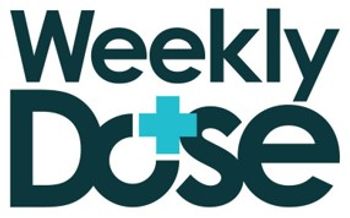
The first oral penem antibiotic, Orlynvah™, has launched in the US, offering a vital treatment option for women with resistant uncomplicated UTIs.

ACOG Publishes Revised Guidance on Maternal Immunization for COVID-19, Influenza, and RSV

The first oral penem antibiotic, Orlynvah™, has launched in the US, offering a vital treatment option for women with resistant uncomplicated UTIs.

Opill OTC has significantly increased contraceptive use and shifts from less effective options among women who are uninsured, of racial/ethnic minorities, and live in the rural US.

Your daily dose of the clinical news you may have missed.

In the RE104 group receiving the 30-mg dose, clinically meaningful reductions in the primary endpoint were seen on day 1 posttreatment and sustained through day 28 follow-up.

Insights on atopic dermatitis treatment preferences, the safety of childhood vaccines, maternal depression’s effect on parenting, and more.

Adequate sleep tops the 4 elements most important to CV health after menopause, with blood pressure, glucose levels, and smoking status close behind.

Your daily dose of the clinical news you may have missed.

Your daily dose of the clinical news you may have missed.

Bayer's elinzanetant, a potential nonhormonal treatment for menopausal symptoms, awaits FDA approval after a 90-day review extension.

Low sexual desire affects up to 40% of women across the lifespan but currently there is no treatment option for those beyond their reproductive years.

Experts reviewed data from the 2002 Women's Health Initiative study that prompted class warnings for estrogen-containing therapies and called for changes, education.

Combined estrogen-progestin hormone therapy used to manage VMS of menopause was associated with a higher risk of developing luminal-like breast cancer subtypes and other subtypes.

ENDO 2025: The publications reflect growing consensus that integration of endocrine screening into standard clinical workflows is essential for early risk detection and long-term disease prevention.

Maternal depression significantly disrupts parenting behaviors, impacting child development and emotional bonding, according to an updated international literature review.

Key predictors of the severity of self-reported cognitive complaints among nurses going through menopause included symptom severity and climacteric stage.

Bayer's elinzanetant gains UK approval as the first dual-action, nonhormonal treatment for menopausal symptoms.

Discover essential clinical insights on Alzheimer disease screening in primary care, eczema treatments, and the latest in cancer detection and diet impacts on CHD risk.

Lipocene anticipates the phase 3 trial data will support an NDA submission for LPCN 1154 to treat PPD in mid-2026, the company said.

Research presented at ACOG 2025 showed 99% of pregnant women included in the analysis were eligible for aspirin, per ACOG guidelines.

From primary care management of heavy menstrual bleeding to postpartum depression screening, find out what you may have missed at ACOG 2025.

From HPV vaccination to PCOS management, this quiz is designed for primary care providers who want to stay ahead in women's health.

Social determinants including partner status, smoking history, and BMI were significantly associated with reduced access to effective hormone therapy for menopausal women.

Your daily dose of the clinical news you may have missed.

ACOG 2025: Joy Baker, MD, discusses the urgent need to prioritize postpartum depression screening, normalize mental health in prenatal care, and strengthen continuity between OB-GYN and primary care.

ASCO 2025. Elinzanetant significantly reduced the frequency of VMS vs placebo in women on endocrine therapy for treatment or prevention of HR+ breast cancer.